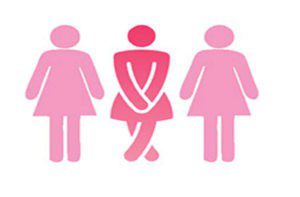By Lisa Johnson, PT, DPT, OCS, WCS, CSCS
 Do you need to strengthen your pelvic floor muscles? If you experience one or more of the following symptoms, than you should consider Pelvic Floor Physical Therapy
Do you need to strengthen your pelvic floor muscles? If you experience one or more of the following symptoms, than you should consider Pelvic Floor Physical Therapy
• Leaking urine when jumping, laughing, coughing or sneezing
• Leak on the way to the bathroom
• Difficulty completely emptying bladder
• Frequent need to urinate
• Distention and pain
You don’t need to accept incontinence as a normal part of aging or what’s expected after childbirth. Wearing pads and protective garments is uncomfortable and expensive. To gain control and get your life back on track, there are multiple options like medications, injections and surgery, but numerous individuals are finding physical therapy to be the first-line of treatment to successfully overcoming their battle with incontinence.
Pelvic Floor Physical Therapy is a Specialty That Requires Additional Training
Pelvic Floor Physical Therapy is a multifactorial approach to strengthening the muscles and function of the pelvic area, bladder and rectum. This is a beneficial therapy for both men and women. Physical Therapist, Lisa Johnson specializes in dysfunction of the musculoskeletal pelvic region and digestive, urological, colorectal, and reproductive systems of both males and females alike.
Pelvic Floor Dysfunction and Incontinence
Pelvic floor weakness and dysfunction can manifest into chronic pelvic pain and/or urinary/fecal incontinence for both women and men. The pelvic floor muscles also work to strengthen the low back, stabilize the pelvic bones, and help with sexual function. Chronic Pelvic Pain (CPP) is described as persistent or recurrent pelvic pain associated with symptoms of lower urinary tract, sexual, bowel or gynecological dysfunction with no proven infection or obvious pathology. These symptoms can manifest themselves in the lower abdomen, pelvis, or perineum and genitalia. CPP can be caused by problems such as pelvic joint dysfunction; muscle imbalance, weakness and trigger points within the muscles of the pelvic floor, trunk, and/or pelvis; incoordination of the muscles related to bowel and bladder function; and entrapment of one or more nerves in the pelvis. CPP can also be related to the presence of scar tissue after abdominal or pelvic surgery.
Stress urinary incontinence usually results from weakness and lack of support in the muscles of the pelvic floor. Pelvic floor supportive dysfunctions can affect function in all of the body systems and can be caused by pregnancy and childbirth, episiotomy, uro-gynecological and colorectal surgeries, injury or trauma, post-menopausal hormonal imbalance, lack of exercise and disuse. In the United States 15 million women experience urinary incontinence. Literature supports the effectiveness of pelvic floor muscle training and is considered first line treatment for these patients.
Women throughout the lifespan, develop musculoskeletal conditions unique to their stage of life and physical demands of their lifestyle. Prenatal and postpartum phases are hallmarked by fluctuating hormone levels that may cause excessive joint mobility, pain, musculoskeletal dysfunction and pelvic floor trauma. These patients respond well to skilled manual therapy techniques to restore postural alignment, muscle balancing, costal cage excursion and trunk stability, promoting function throughout pregnancy and postpartum. Menopause and the post-menopausal years are a vulnerable time for the bones, as decreased estrogen levels affect (1) bone maintenance, contributing to osteoporosis and; (2) pelvic floor muscles, contributing to supportive dysfunction, dyspareunia and sexual dysfunction.
Lisa Johnson, PT, DPT, OCS, WCS, CSCS
Dr. Lisa Johnson is a Board-Certified Women’s Health Specialist and Board-Certified Orthopedic Specialist, extensively trained in the management of pelvic floor health. She can identify the possible generators of pelvic pain, refer to medical specialists for diagnostic testing and treatment, and develop a treatment plan specific to the patient suffering from CPP which typically includes manual therapy treatment of the pelvis, appropriate exercise, visceral release and both external and internal trigger point release vaginally and/or rectally. Dr. Johnson can determine the specific area of weakness and utilize various methods to retrain these muscles including the use of biofeedback and other internal and external methods.
Total Body Physical Therapy
Total Body Physical Therapy is a center designed around one singular philosophy: Treat the whole person to yield superior results. With this as our guiding principle, we are able to bring balance to your body, to your mind, and to your spirit. Whether you seek our services for the treatment of an injury, general ongoing wellness, or for finely tuned training programs, our philosophy ensures that you will exceed your own expectations and ultimately find Total Body wellness.
To schedule your appointment, please call (941) 203-8705
Total Body Physical Therapy
941-203-8705
www.lisajohnsonphysicaltherapy.com









